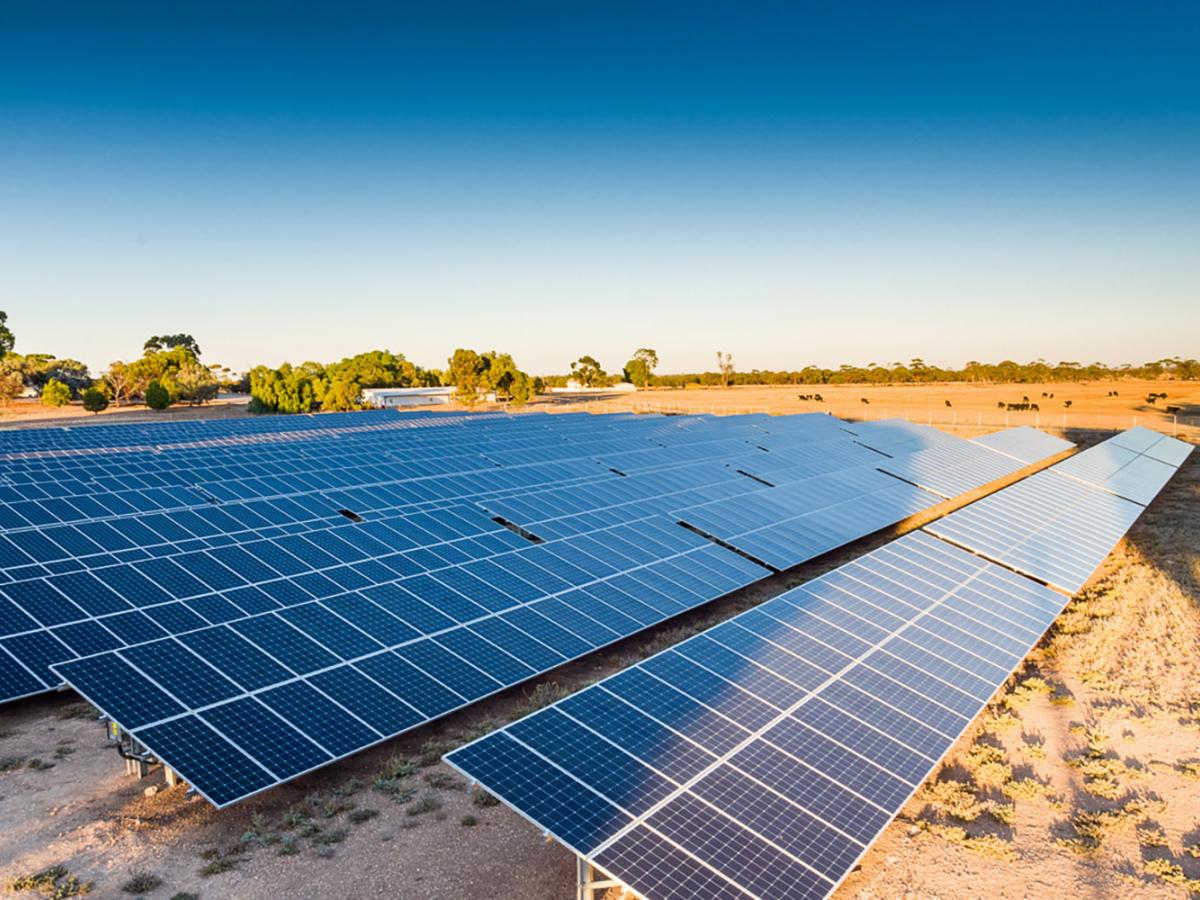
The University of Adelaide Solar Farms at Roseworthy Campus
Scientists will help provide the expertise needed for Australia to make the transition to a green energy superpower.
Green energy is energy from renewable resources that are naturally replenished. It includes sunlight, wind, the movement of water, and geothermal heat.
On Tuesday 16 May the University of Adelaide's Professor Michael Goodsite, Pro Vice-Chancellor (Energy Futures) and Director of the University of Adelaide's Institute for Sustainability, Energy and Resources (ISER) appeared at the public hearing of the Inquiry Into Australia's Transition to a Green Energy Superpower.
Professor Goodsite is available for comment on his submission to the inquiry about the important role that research will play in the transition, including:
- Australia's expertise in renewable energies, along with its vast resources, presents an opportunity to create a sophisticated industrial economy based on the transition required across the energy value chain;
- Investment in future industries should be tied to research to ensure that these industries can remain at the forefront of innovation;
- The regulatory environment must be harmonised across the nation, especially for the hydrogen sector;
- Cooperative Research Centres (CRCs), such as the Scaling Green Hydrogen CRC and the Copper for Tomorrow CRC, are excellent examples of cooperative efforts in which people who may normally compete invest together to achieve and deliver for the benefit of Australia;
- Globally competitive transformative research, such as that carried out at the University of Adelaide in collaboration with its partners in industry and government, can overcome complexity, drive change, and create value for a more sustainable future;
- Australia should use the green energy that it will generate in the future to manufacture green raw materials such as green steel for export, instead of exporting its green energy;
- Australia should establish special trade zones or areas and provide incentives for marine bunkering of green fuels and synthetic aviation fuels;
- An "energy transition institute" should be established responsible for assembling future-focused capability across all domains, including social science, system design, regulation, and STEM;
- The clean energy transition requires 300 per cent more copper by 2050 than today. Copper supply must be increased without proportionately increasing negative environmental and social impacts.






